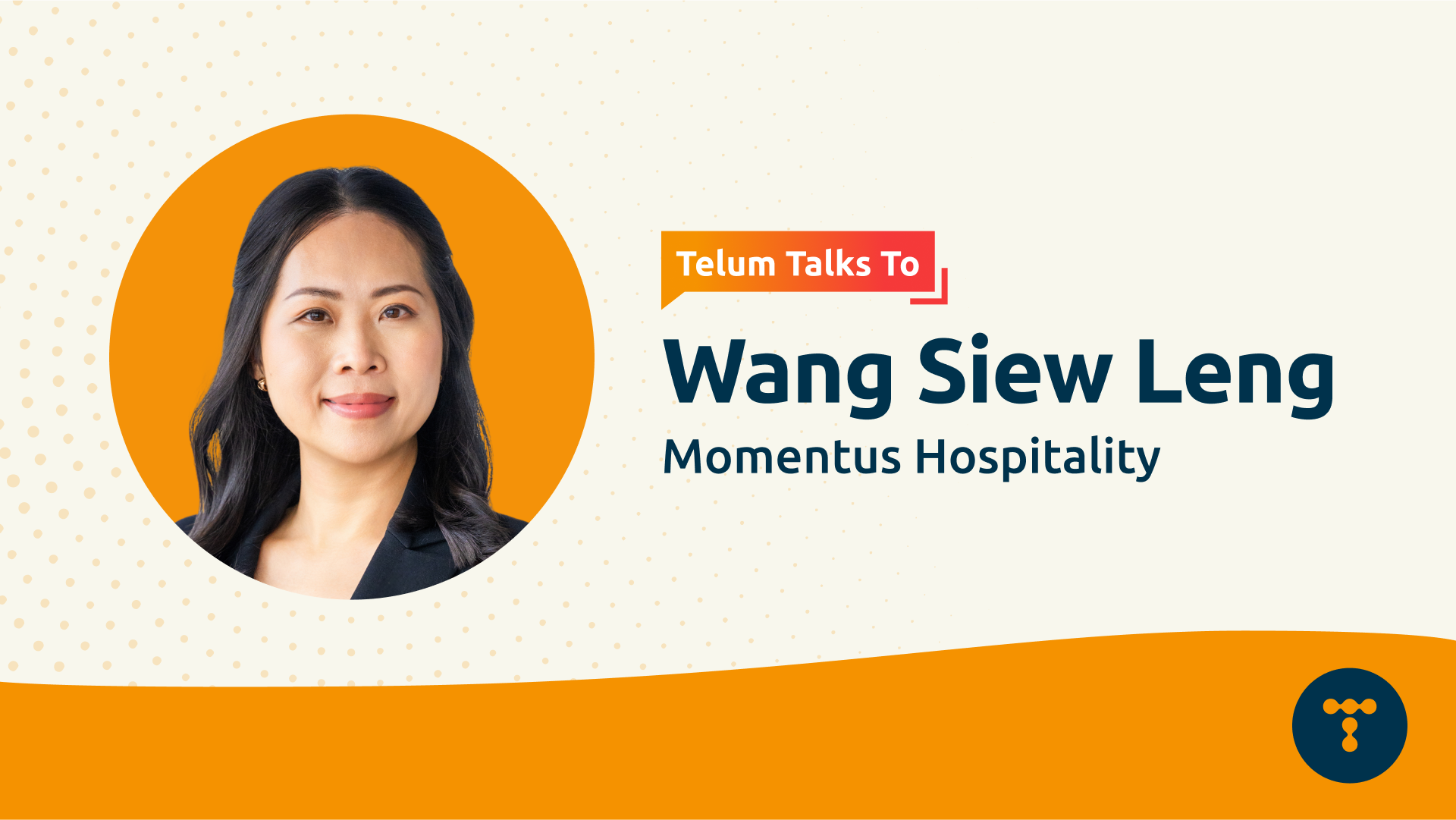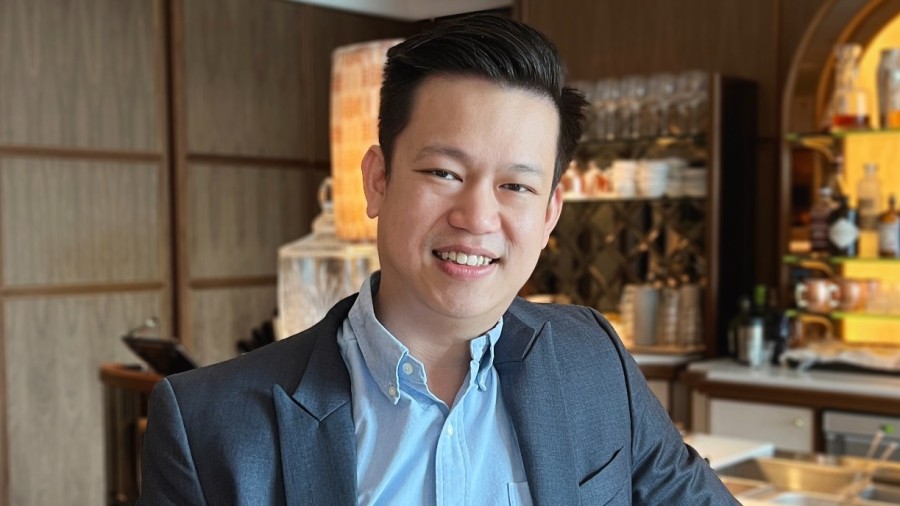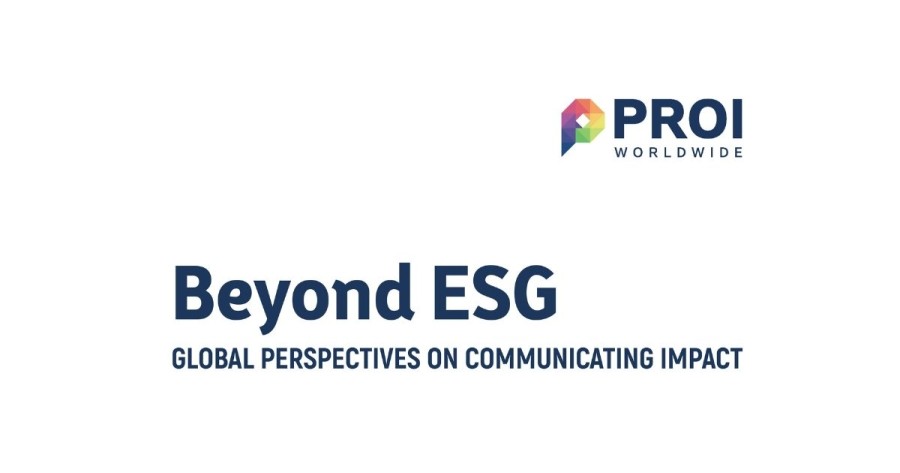Hospitality PR today is more than just promoting destinations - it's about shaping guest experiences, building emotional connections and communicating brand values that resonate. With the media landscape growing more agile and guests becoming more value-driven, communications professionals are rethinking how to tell stories that matter.
Telum Media caught up with Wang Siew Leng, Director of Public Relations & Marketing Communications at Momentus Hospitality as she share insights on how the brand is evolving its storytelling approach, and embedding sustainability and employer branding into its core messaging.
From your perspective, how has hospitality PR evolved in recent years? What shifts have you noticed in Momentus' approach to storytelling and media engagement today compared to before?
I've been in hospitality since 2008, and I'd say there have been quite a few significant changes, especially in recent years. The media landscape has become more integrated, a lot more agile and very purpose-driven. With the rise of digital platforms and the shifting expectations of guests, one buzzword that keeps coming up is authenticity. That growing importance has redefined how we connect with our audiences.
Today, it's not just about visibility. It's about relevance, resonance and building relationships through storytelling that matters. That's why at Momentus Hospitality, we've moved beyond a traditional, single-channel communications mindset and now embrace a more layered form of storytelling that not only showcases our properties but also spotlights our people, capturing the essence of the Momentus experience to reflect our brand values authentically throughout.
Additionally, media engagement has evolved into a more strategic and insights-led function. Instead of broad-based outreach, we focus on cultivating relationships with media partners whose audiences align with our brand. By understanding their editorial direction and reader interests, we can tailor story angles that offer clear relevance and value. This shift moves us beyond generic news dissemination toward a more collaborative approach, one that delivers purposeful narratives, strengthens brand affinity and drives meaningful media impact.
What do journalists want from PR teams these days, and how do you make sure the collaboration works smoothly for everyone?
In my opinion, journalists still want the same core things, but with a stronger emphasis now on relevance, clarity and access. Especially in hospitality, it's easy for outsiders to see only the polished front, but journalists are looking for what happens behind the scenes. We try to give them that, as much as possible, while staying within our limits.
They appreciate timely, well-packaged stories tailored specifically to their audiences. No two media are alike. Even if 70% of the content is similar, how I angle it to speak to their specific audience is important.
We always support our stories with strong visuals, credible spokespeople and authentic narratives. We approach media collaboration with a partnership mindset, taking our time to understand what each journalist or media outlet needs, then tailoring our messages accordingly. That way, we ensure what we offer is newsworthy and aligned with their audience.
Sustainability and employer branding seem to be big talking points now. How is Momentus weaving these into your communications?
Momentus Hotels & Resorts is a very young brand established in 2022 and our flagship hotel opened in March 2023. That said, sustainability and employer branding were built into our strategic priorities from the start and are deeply ingrained in our brand pillars as our commitment to being good by nature and good for people.
Our sustainability efforts follow the Global Sustainable Tourism Council (GSTC) framework, focusing on responsible management, community impact, cultural preservation and environmental stewardship. Since launching our sustainability committee in Q4 2023, we've implemented initiatives from ethical sourcing, energy efficiency to encouraging guests to explore local culture and ensure these commitments are authentically communicated.
As a young brand, we're proud of the small steps we've taken. Since the property's refurbishment, we were able to implement features that other hotels might not have been able to, such as installing filtered drinking water taps in every guest room, a unique addition made possible during this process. At the same time, partnering with local suppliers and businesses remains an ongoing effort we believe all hotels can and should embrace. These efforts reflect our commitment to sustainability and championing the local community in meaningful, everyday ways.
On employer branding, we are deeply committed to creating a workplace where every staff, who we call Momentus Host, feel valued, supported and empowered.
As a group, we have developed comprehensive benefits, wellness programmes and staff recognition initiatives, such as the Momentus Star Awards, to drive employee engagement and foster a positive workplace culture.
We also work closely with our leaders to identify and develop high-potential talent, implement targeted mentorships and uphold performance frameworks that are reviewed and refined every year. That agility is a huge advantage as it allows us to make timely, relevant changes without waiting for issues to build up or opportunities to pass us by.
At Momentus Hospitality, we encourage open communication. In our Hotel GM dialogues, everyone - from housekeepers to management - speaks up. This openness helps us address root issues early and improve collaboration across teams. Most importantly, we're guided by the Japanese principle of Kaizen, which means we constantly strive to improve, even if things are already good.
How does Momentus balance its values with what guests want today?
Today's guests expect more than just service; they are looking for quality, authenticity and value in every interaction. We are serving a generation of guests who are forward-thinking and eager to make the most of their time, investments and experiences.
To meet those expectations, we embed our three core brand values - Smart Design, Simplicity In Execution and Good By Nature - into every facet of our operations. For instance, we had a guest on a tight business schedule who happened to be a big coffee lover. He wanted to explore Singapore's coffee places, but didn't have time to research. One of our service team members put together a personalised Google Map list of nearby speciality coffee shops and emailed it to him. He managed to visit a couple and was really grateful. It didn't cost anything, but it was a thoughtful, relevant and authentic experience for our guest. It also showed that we listened and cared about his experience beyond the four walls of the hotel.
At the end of the day, we believe in delivering experiences that are high in quality and rich in purpose for our guests and our Momentus Hosts.

Telum Talks To: Wang Siew Leng from Momentus Hospitality
by Telum Media
19 June 2025 4:00 PM
6 mins read
Telum Media creating connections
Get in touch to learn more
Previous story
Telum Talks To: Jonathan Tan from VoxEureka
You might also enjoy
Moves
Aaron Tan has joined FleishmanHillard as Auto Practice Lead and Account Director, bringing experience across branding, communications, marketing and digital strategy.
Based in Singapore, he has accumulated more than 15 years of experience, having previously held senior roles at agencies including The Ate Group and W Communications.
31 December 2025 2:49 AM
1 min read
Moves
Alexa Cheah has joined W Kuala Lumpur as Marketing Communications Manager. In her new role, she manages the hotel’s brand and communications efforts, including media relations, corporate communications and reputation, events, social media, as well as beverage and food marketing, working alongside the Director of Marketing Communications.
Her prior experience includes roles at Grand Hyatt Kuala Lumpur, followed by Hyatt Hotels in Malaysia, where she contributed to brand campaigns, hotel openings, and cross-property initiatives in the cluster marketing team.
29 December 2025 7:17 AM
1 min read
Research
PROI has released their latest report, "Beyond ESG: Global perspectives on communicating impact". With insights from 11 global communications agencies, the report highlights key trends shaping how ESG and purpose will be communicated in 2026.
Ted Deutsch, Executive Managing Director of RF|Binder and Chair of PROI's ESG Working Group, said: "While certain markets are shying away from acronyms and terms that are seen as overly political, this PROI report confirms that companies are still focused on driving change through sustainability, corporate culture and good governance. The challenge now lies in communicating this with authenticity."
ESG across the regions
ESG maturity differs widely by region. Markets such as Australia, Switzerland, and the Middle East operate in relatively advanced regulatory environments. In Australia especially, Paula Cowan, Managing Director at ImpactInstitute, described ESG as no longer a "nice to have," but rather a licence to operate.
Meanwhile, countries such as Poland and the Czech Republic are experiencing signs of ESG fatigue. As Dirk Aarts, CEO of 24/7 Communication, observed in Poland: "...enthusiasm has cooled. Many businesses now treat ESG chiefly as a regulatory requirement rather than a reputational advantage."
In Thailand, ESG is viewed as central to long-term competitiveness, economic resilience, and access to global markets. Whereas in Ukraine, ESG is shaped by wartime realities and EU integration, with social impact and resilience taking precedence.
Despite their differences, one thing stays consistent: stakeholder expectations are converging. The report highlights how companies are increasingly expected to demonstrate real progress and credible outcomes rather than just showing intent.
Global pressures driving change
It was reported that every region, in one way or another, was being impacted by global forces reshaping their ESG communications. Regulatory alignment stood out as a major driver, particularly around mandates by the International Sustainability Standards Board (ISSB), the Corporate Sustainability Reporting Directive (CSRD), and other international disclosure frameworks.
Trade-related mechanisms, such as the EU's Carbon Border Adjustment Mechanism, have resulted in a push for ESG adoption in export-oriented economies like Thailand. Chelsea King, Head of PR Operations and Editorial Director Midas PR, explained: "This creates direct financial pressure and has spurred Thailand’s domestic carbon tax and mandatory reporting efforts."
Political dynamics also play a significant role, with the U.S. becoming the focal point of ESG politicisation, influencing corporate behaviour across multiple markets. This has contributed to more cautious language globally. For example, in Canada, "...U.S. discourse has influenced Canadian corporate leaders to reconsider how explicitly they use the 'ESG' label," said Kimberly Cohen, CEO of Brown & Cohen.
At the same time, global enforcement action against greenwashing is increasing in Canada, as well as other markets such as Australia, Switzerland, and the UK, reinforcing a shift toward proof-based communication.
Language and framing
The report outlined a clear global trend: the declining use of the acronyms "ESG" and "DEI" in public-facing communications. While these terms remain common in investor, regulatory, and technical contexts, organisations are shifting toward simpler and less politicised language, such as "sustainability," "responsible business," "resilience," and "impact."
Kimberly noted that in Canada, these acronyms are increasingly being broken down into their component parts, whereas in Poland, Dirk explained that the narrative now focuses on health, quality of life, and local community impact - moving away from war language, such as "fighting climate change," toward tangible well-being. This shift doesn't reflect a divergence from ESG principles, but rather as an effort to improve clarity, reduce political risk, and connect more directly with local audiences.
Across several regions, including Canada, the UK, the U.S., Thailand, and the Middle East, an increase in social initiatives continues, but under different labels, such as workforce development, inclusion and belonging, human capital management, and community impact.
Communications challenges
Across all regions, communications leaders are reported to have been facing similar challenges, particularly in balancing ambition with credibility. Stakeholders expect companies to act, but are increasingly rejecting vague or exaggerated claims. Greenwashing, social-washing, and "greenhushing" - deliberately under-communicating progress, which is reported to be rising in Australia - are recurring risks.
Another challenge is internal alignment. ESG data and narratives often sit across multiple functions at an organisation, and when teams are not aligned, messaging can become inconsistent or fragmented, resulting in a lack of trust. In sensitive contexts, such as in Ukraine or politically polarised markets like the U.S. and UK, audiences are sceptical and quick to point out inauthenticity.
Looking ahead
Contributors generally predict that over the next two to three years, ESG communications are expected to become more integrated with financial reporting and core business strategy. Many regions anticipate stricter disclosure requirements, greater use of assurance, and increased focus on governance as the foundation for environmental and social credibility.
Media scrutiny is also intensifying. Investigative reporting on ESG claims is growing, while routine sustainability announcements receive less attention unless backed by data or clear outcomes. At the same time, there is continued demand for accessible explanations, case studies, and stories that demonstrate how ESG efforts deliver tangible benefits to communities, employees, and economies.
Practical guidance for communications professionals
Based on insights across all 11 markets, some common practical guidance include:
- Lead with evidence: Anchor claims in data, defined methodologies, and disclosures, with assurance.
- Adapt language and be precise: Localise messaging and ensure clear messaging that resonates with target audiences, while avoiding unnecessary jargon.
- Show progress over time: Share interim milestones and regular updates to demonstrate momentum and avoid greenwashing or greenhushing.
- Integrate ESG into the business narrative: Position environmental, social, and governance efforts as part of core strategy and operations, rather than a standalone initiative globally.
Find the full report, including in-depth insights for each region, here.
29 December 2025 6:15 AM
5 mins read


